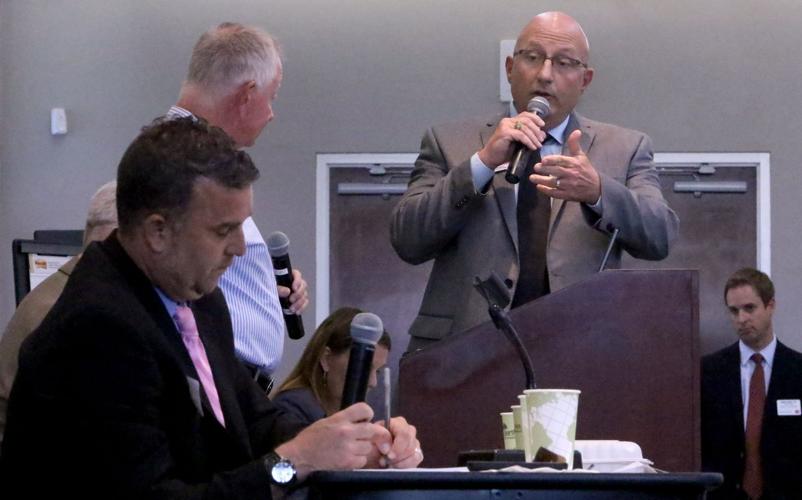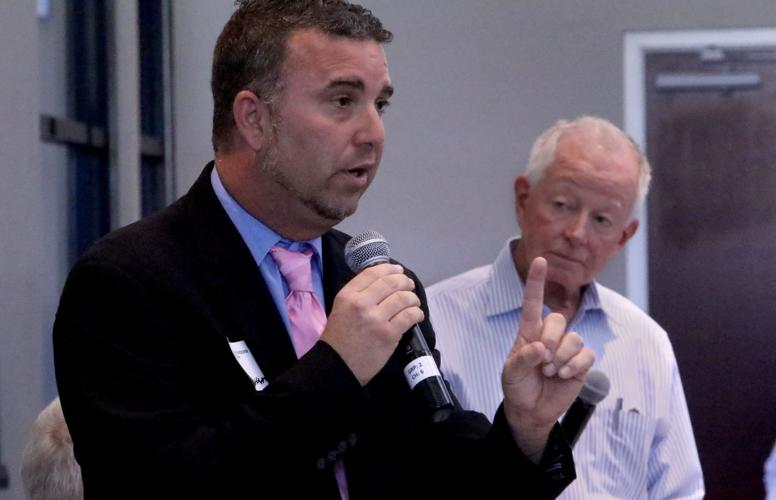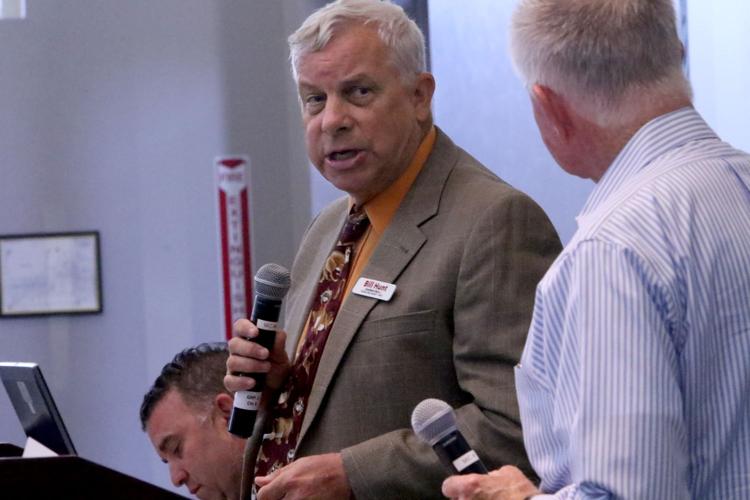Candidates for Tucson City Council debated twice Tuesday.
The double feature starred Democratic incumbent Paul Cunningham and Republican challengers Margaret Burkholder, Bill Hunt and Kelly Lawton. Democratic incumbents Regina Romero and Shirley Scott joined one of the two events.
Each side told a different story about Tucson.
Cunningham said Tucson has seen some success in the past few years.
“We’ve paved over 950 miles of roads, we’ve seen investment in downtown of almost $1 billion, we’ve experienced job growth, we’ve experienced a decade of crime declining,” he said. “Our biggest success is becoming a leader in water conservation.”
His Republican opponent, Lawton, sees things differently.
“I see a city that is not being managed effectively, I see a budget that’s out of control, I see the pension that is ready to burst,” Lawton said. “I see grave concern for the city of Tucson.”
Here are some highlights from the one-hour debate hosted at the Tucson Association of Realtors and the two-hour debate hosted by the League of Women Voters.
On homelessness and poverty
Cunningham said any solution must be humane and must protect people’s free-speech rights. He said the city’s program to house homeless veterans has been successful.
Lawton said Tucson is the fifth-poorest city in the nation. Tucson needs a better job market to help solve the problem, he said.
“The best weapon against poverty is a job,” he said.
“Mr. Cunningham, Regina Romero and others have done nothing to address the issue,” Lawton said. “They keep kicking the can down the road.”
Cunningham objected to that statement. He started a nonprofit and raised $50,000 for homeless teens, he said.
Scott said police and fire departments act humanely to help homeless people and the city allocates money to social-service providers. She invited all interested groups to help the city address the issue.
Burkholder said homelessness is a community problem that includes other aspects, such as mental health, substance abuse and domestic abuse.
“It should be less government and more community, because this affects all of us,” Burkholder said.
On the business environment
Tucson has a reputation for being business unfriendly, and development services processes should be streamlined and simplified, Hunt and Lawton said.
Cunningham said the council approved a 45-day timeline for certificates of occupancy to help small businesses and approved 16 incentive programs to attract big businesses.
Burkholder said development services processes hinder, not help, and she doubted the effectiveness of the incentive programs.
“Show me the money! Show me the jobs!” she said.
Romero brought numbers, saying incentive programs helped create 3,000 high-wage jobs.
Scott said she has been working to solve problems while her opponent, Burkholder, has been criticizing the city without offering solutions.
On the aerospace industry
Cunningham said he could count 21 different ordinances that have helped the aerospace industry because Raytheon Missile Systems is one of the city’s “most important economic drivers.”
Lawton called that “malarkey” and said the city’s steps toward a buffer zone for Raytheon are reactionary.
Raytheon has added jobs elsewhere because they had no room to expand in Tucson, he said.
On Davis-Monthan
“The base stays open no matter what, and if it means the F-35, well let it come,” Cunningham said of Davis-Monthan Air Force Base. He’s never flinched from his support of the base, he said.
Hunt said the city should have “a pro-military attitude.”
“I don’t particularly care whether they base new F-35s there, or A-10s if they continue to have them, or KC-135s,” he said. “I believe that’s a decision the military needs to make.”






